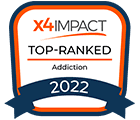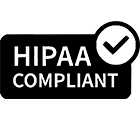If you, a family member, a partner, or a friend are affected by opioid addiction, you know that overwhelming life situations can so often be a major contributing factor. It may be the loss of a loved one, the loss of employment, or maybe the lack of meaningful connections with family and friends. Counseling for opioid addiction is a crucial stage of the recovery process.
Counseling allows patients to talk through any personal issues, which strengthens the recovery process.
While medication-assisted treatment (MAT) with Suboxone (buprenorphine) may treat physical symptoms like withdrawal and cravings, it will do little to help change one’s mindset to get through tougher days. Let’s look at counseling and find out why it is so valuable.
Cognitive Behavioral Therapy for Opioid Addiction
Cognitive Behavioral Therapy (CBT) is another name for counseling. CBT is a psychotherapy that aims to help patients identify negative thought patterns and to change them. Patients are equipped to learn how to handle negative life situations by processing and reflecting on them objectively and effectively. Patients learn to make positive life decisions that can produce positive results.
CBT is recommended for a whole range of medical conditions, such as depression, anxiety, and obsessive-compulsive disorders. It is also highly recommended for patients who are struggling with opioid addiction and people who are on Suboxone as part of medication-assisted treatment. CBT works together with medication to provide for a more robust path to recovery.
What Are Some Obstacles To Receiving Cognitive Behavioral Therapy?
One of the biggest obstacles to patients receiving CBT is the lack of knowledge about the importance of this therapy—among patients but also healthcare providers. Many people see medicine solely through the lens of diagnosis and drug prescription and are not aware of counseling services that may prove to be hugely effective.
Often, patients struggling with opioid addiction are told about the type of drugs that they can be prescribed for their condition, such as buprenorphine and methadone, without also being advised on the type of counseling services that are available.
The Cost of Counseling
Another barrier to receiving CBT is the cost. In the United States, most people pay between $20 to $250 per hour for counseling services. If insured, the cost lowers to about $20 to $50 per hour. However, these costs may prove to be steep for lower-income people.
Trouble Finding Good Opioid Addiction Counseling Services
Another problem is that some patients need help finding high-quality counseling services. There is a lack of awareness in many parts of the country about where patients can find affordable counseling services in their local areas. There may also be some stigma attached to speaking with a counselor.
Ironically, many people only receive counseling services once they end up in jail. The United States prison sector is one of the country’s largest providers of counseling services.
People should not need to commit a crime to access counseling services.
What Are Some Options?
While finding affordable CBT in your area may be difficult, one form of non-medical gatherings that many opioid addiction recoverers find helpful is Narcotics Anonymous. Through these gatherings, people struggling with opioid addiction can find other people who are going through similar hardships. This creates a support network that can be incredibly helpful in the recovery process.
While an in-person counselor is preferred, an alternative could be digital counseling. Online counseling offers CBT services for people struggling with opioid addiction. Digital CBT is meant to be an adjunct to medication-assisted therapy (with Suboxone/buprenorphine). It supports the recovery process by exploring deep issues such as triggers and cravings and how to overcome them.
Finding Counseling for Opioid Addiction: Conclusion
Counseling can significantly improve outcomes for patients struggling with opioid addiction. It offers an avenue for people to feel seen and heard.
Together with medication-assisted therapy, it provides the best opportunity for recovery and growth for people affected by opioid addiction.
If you or a loved one is struggling with opioid addiction, QuickMD offers online addiction recovery services. Our licensed physicians can provide Medication-Assisted Treatment (MAT) via telemedicine, including buprenorphine prescriptions, to help you start your journey toward recovery. Reach out to us today and take the first step to reclaim your life.
















